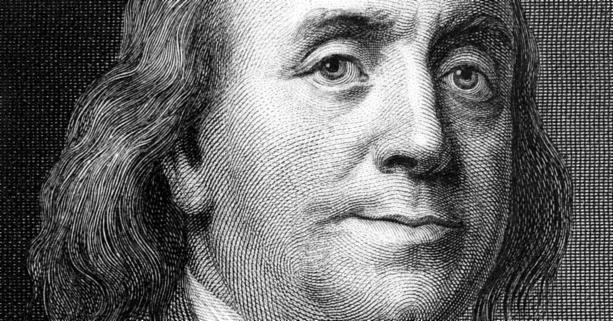Despite the morals expressed by the Founding Fathers in the writings left for posterity the majority of them were a randy bunch. Mistresses, dalliances, and illegitimate births followed in the wake of many. We tend to dehumanize the Founders, equating them with the marble statues erected in their memory, remembering them as bewigged expounders of high moral character, serious, sober, and sanctimonious. Nothing could be further from the truth. All were subject to the same foibles as those faced by people everywhere. Franklin’s writings for example, and those about him written by others demonstrate a character untroubled by the rumors and gossip over his behavior.
Some of the Founders were indeed sober and steady men who maintained a fealty towards their wives despite long separations and stressful times. Others found the need to take solace in the brothels of Philadelphia while working in that city. Others maintained mistresses carefully concealed from the eyes of their fellow delegates. The sex lives of some of the Founders can only be speculated about because of their letters and diaries being destroyed following their deaths. Washington’s letters to his wife Martha, for example, were consigned to flames by her when he died in 1799.

Here are some tales of the sex lives of the Founders of the nation.

Thomas Jefferson
Thomas Jefferson was a 43 year old widower when he was introduced to the married Maria Cosway in Paris in 1786. Jefferson had recently witnessed the death of his wife, who had given birth to six children during their marriage, though only two survived more than a few years. Martha Jefferson was never in strong health, and the childbirths and subsequent deaths of her children weakened her further. On her deathbed, she informed Jefferson that she couldn’t bear the thought of another woman being mother to her surviving children, and made him promise he would never remarry.
Jefferson was still grieving when he arrived in Paris. He found distraction in the architecture and museums in the French capital. He was visiting the Grain Market with John Trumbull, the noted American artist, when Trumbull introduced him to Richard Cosway and his wife Maria. Jefferson canceled his scheduled dinner with Trumbull, and spent the rest of the day with Maria. Maria’s husband was a well-known painter of miniatures and an equally well-known philanderer, and appeared to at first have no objection to Jefferson’s overt attentions to his wife.
They met in August and for most of the remainder of the summer Jefferson escorted Maria to various museums and other sights of Paris. The two shared an interest and appreciation of architecture, and toured the city and the many fine chateaux which stood nearby. They also shared an appreciation of music, Maria Cosway being an accomplished pianist and Jefferson a violinist. In the evenings they frequently played together. By the beginning of October Richard Cosway was ready to return to London and demanded that his wife accompany him; she had planned on remaining in Paris to paint.
When Maria complied with her husband’s wishes and left for Paris for London, Jefferson became melancholy to the point of depression. He wrote a letter to Maria, which survives in his papers (Jefferson had invented a copying machine which made copies of his letters as he wrote them). The letter, which is over four thousand words in length, describes a dialogue between Jefferson’s head and heart, the former expressing through reason why a romantic relationship between them was unwise. The heart responds with passionate expressions of Jefferson’s feelings for the married Cosway.
Maria Cosway evidently responded more favorably to the head’s side of the argument, her letter of reply in late October was cool and cordial, rather than passionate. Jefferson did not press the argument, but continued to correspond with Maria for the rest of his life. They did meet again in Paris when Maria returned, but she told Trumbull that Jefferson seemed distant and remote. There is no proof of a physical relationship between them that autumn in Paris, but the fervor of Jefferson’s letter indicates that, on his side at least, such a relationship was wholly desired.

